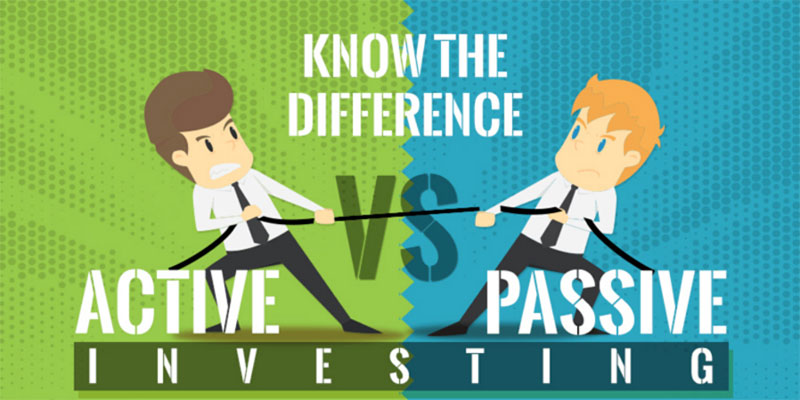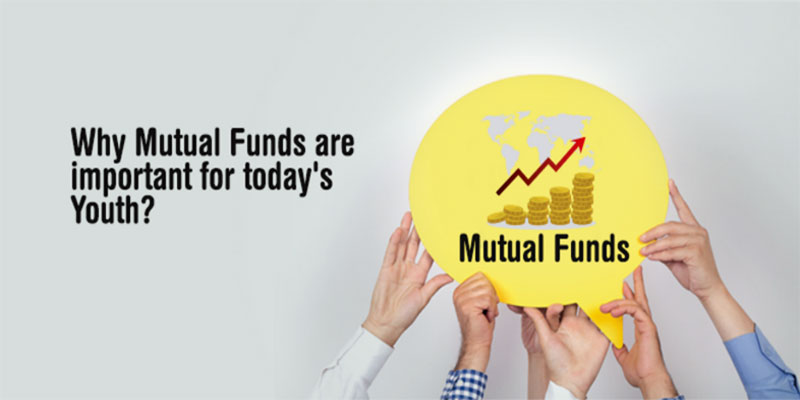What You Should Know Before Choosing Actively Managed Funds or Passive Investing
Jan 01, 2024 By Triston Martin
To put your investments to work in the market, you may take either a passive or an active approach. Both Actively Managed Funds vs. Passive Investing measure their success relative to market indices like the S&P 500. Still, the goal of active investors is to outperform the index, while the goal of passive investors is to match the index's performance as closely as possible. Investors, including wealth managers, often have a strong preference for either active or passive investing, so any discussion of the two strategies is certain to get contentious rapidly. While many investors prefer passive strategies, proponents of active investing point to their advantages.For the first time in quite some time, active investing has gained traction, especially in times of market turmoil.
Benefits And Drawbacks Actively Managed Funds vs. Passive Investing

There is much discussion in the world of personal finance regarding whether actively managed or passively managed funds are better. The following are benefits that advocates of actively managed funds often cite:
- Active funds are the only way to ensure success when investing in the market.
- There are a few funds with a history of exceptional returns. Still, somehow the performance of any fund varies over time, so it's crucial to study the fund's past results before putting money into it.
However, There Are Several Drawbacks To Actively Managed Funds
- Generally, actively managed funds "underperform" and do some worse than the market index.
- There is no way to predict a fund's future performance by looking at its past performance. No one can confidently say how any given fund will perform in the future.
- Taxes and fees are incurred whenever an active fund sells an investment, reducing the fund's overall performance.
- You will be charged the same amount each year, regardless of the performance of your investment.
- 3 Consider the following scenario: the index promises a 7% return, whereas your active fund guarantees an 8% return but also costs you 1.5%. 5%.
Examples Of Funds That Are Managed Either Passively Or Actively

Bob uses a passive strategy by investing in an index fund that follows the S&P 500. His investment vehicle is an index fund that employs little active management. The price he is charged is 0.06% of the capital. Bob's fund is backed by a promise to replicate the S&P 500's returns. When Bob turned on the television and heard that the S&P had risen by 4% today, he wasn't surprised. His investments had performed similarly. When he learns that the S&P has dropped 5%, he realizes that his savings have probably seen a similar decline. Bob is aware, too, that the size of the management charge he pays won't significantly cut into his profits. Bob knows his fund's performance won't be a perfect match with the S&P 500, but he accepts that there will be minor differences.
Nonetheless, Bob does not think that these little distinctions matter in the slightest. Sheila's aggressive investment fund invests in various equities in the banking, estate development, energy, and automobile manufacturing industries. Her fund managers analyze sectors and businesses to determine when to purchase and sell shares. Sheila understands that her fees to the fund managers are over 1%, far more than Bob's fees. Moreover, she knows that her fund will not follow the S&P 500. According to the news, the S&P 500 gained 2% today, but Sheila has no idea how her investments fared. Her savings might have gained or lost value.
Sheila finds this fund appealing since it allows her to maintain her hope of outperforming the index. Bob can't stray from the index since his fund's success is directly proportional to it. However, Sheila may be able to get greater results than the index. By comparing and contrasting these two funds' actual performance in practice, you can determine which one is most suited to your needs.
Conclusion
One kind of investment fund, active or passive, may be more suited to your needs than the other. A mutual fund with a manager or team of managers making investment choices is called an "actively managed investments vehicle."In contrast, an index is merely followed by a passively managed fund. It lacks a management staff to oversee financial matters. The phrase "actively managed fund" usually refers to a mutual fund, but there are marketplace funds (ETFs) that are managed and operated (exchange-traded funds). You can't tell whether you have an active or managed fund just by looking at the name of the fund. One may be found in several different settings; if you're interested in a particular fund, read its prospectus to find out more.

Does Insurance Cover a Hit-and-Run: An Overview
Insurance does cover hit-and-run incidents, but the coverage that protects you are usually optional. In the event of a hit-and-run, make sure you are sufficiently protected
Dec 07, 2023 Triston Martin

Roth IRA Versus 401(k): A Detailed Comparison
Comparing Roth IRAs and 401(k) plans: Understand the differences in tax treatment, contribution limits, and investment options to optimize your retirement savings strategy.
May 12, 2024 Triston Martin

Nassau Financial Group Life Insurance - Uses, Pros, and Cons
Life insurance from Nassau Financial Group also includes various Nassau annuity options. Customers may customize their coverage to their liking and desire.
May 09, 2024 Susan Kelly

What Exactly Are Tax Brackets? An Explainer for the Financially Curious
Discover how understanding tax brackets, effective tax strategies, and smart planning can significantly reduce your tax burden and enhance financial health.
Mar 22, 2024 Susan Kelly

Should You Expect Your Teen to Pay Taxes?
These days, children are highly driven to achieve their goals, and even if they are still young enough to be claimed as dependents by their parents, they may still be required to pay taxes. You may be permitted to put their income on your tax return in certain circumstances, while in others, they will be required to submit their tax return. The quantity of the minor's income and the source of that revenue are considered when determining whether this is necessary.
Jan 14, 2024 Triston Martin

Basis Risk in Financial Context: Types, Formulas, and Examples
The basis risk is the connection between an asset's cash and futures prices. This discrepancy usually occurs when a hedged asset doesn't match the futures contract asset. Read more.
Dec 30, 2023 Susan Kelly